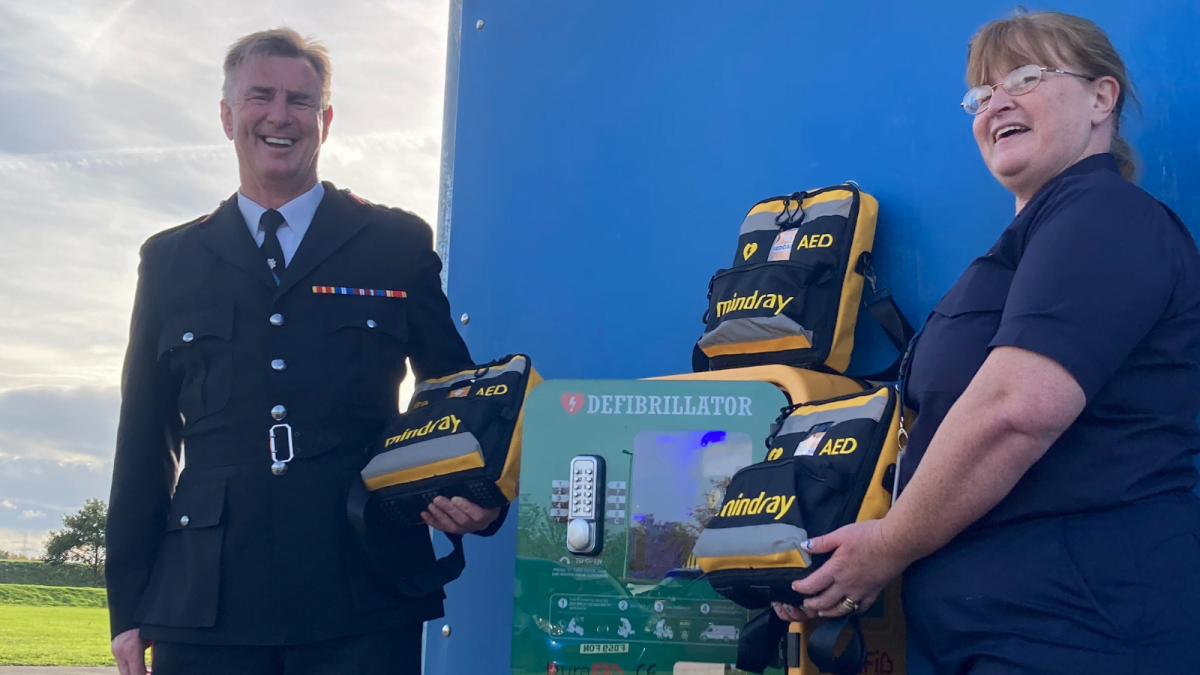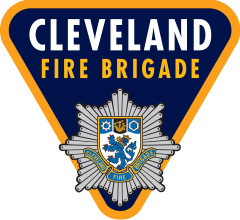
Cleveland Fire Brigade has joined the initiative to have more life-saving machines publicly available to the communities we serve across Teesside. Community Public Access Defibrillators are set to be installed outside all 14 fire stations, building on the one that is already in place and live at the Brigade Headquarters in Hartlepool. They will be all in place by the end of November.
According to the NHS, less than one in ten people survive a cardiac arrest in the UK. The immediate delivery of cardiopulmonary resuscitation (CPR) combined with early use of a defibrillator gives a person in cardiac arrest the best chance of survival. Defibrillators send an electric pulse or shock to the heart to restore a normal heartbeat. Unfortunately, many of these life-saving machines are not available to the public, 24 hours a day, to use in case of a life-threatening emergency.
Chief Fire Officer, Ian Hayton said: “We are delighted that the defibrillators are now being rolled out across Cleveland and will be available at all our community fire stations. Community Public Access Defibrillators play a vital role in saving lives and having them more readily available means even more people will be able to access them. It is all part of the fire and rescue service’s role in protecting our local communities.”
October marks Restart a Heart Day (16th) which aims to raise awareness about cardiac arrest and helps people to learn CPR, giving them lifesaving skills and the confidence to use them.
The Brigade’s involvement in the rollout was initiated by our Workshops Team, Admin Assistant Kelly Cairns who is also member of the DS43 Community Defibrillators group that was created after the sudden death of Hartlepool cricketer Danny Schumer, aged 43, following a cardiac arrest. DS43 deliver CPR training and aim to ensure that every household in Hartlepool is within 500m of a public access defibrillator.
The public access defibrillators are registered to the British Heart Foundation National Defibrillator Network and are deployed by the North East Ambulance Service (NEAS). They have full instructions, including ringing 999 to get an access code.
In the North East, we know that only 8.7% of patients who had resuscitation attempted on them survived to be discharged from hospital. A victim’s chance of survival falls by around 7 – 10% every minute that defibrillation is delayed. When a heart stops, within four to five minutes, damage to the brain and other vital organs can occur without intervention. If we achieved the same survival rates of countries like Norway, an additional 100 lives could be saved each week – the equivalent of approximately 5,000 every year.
Click here for more information about Community Public Access Defibrillators.




